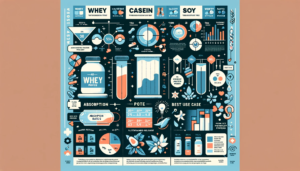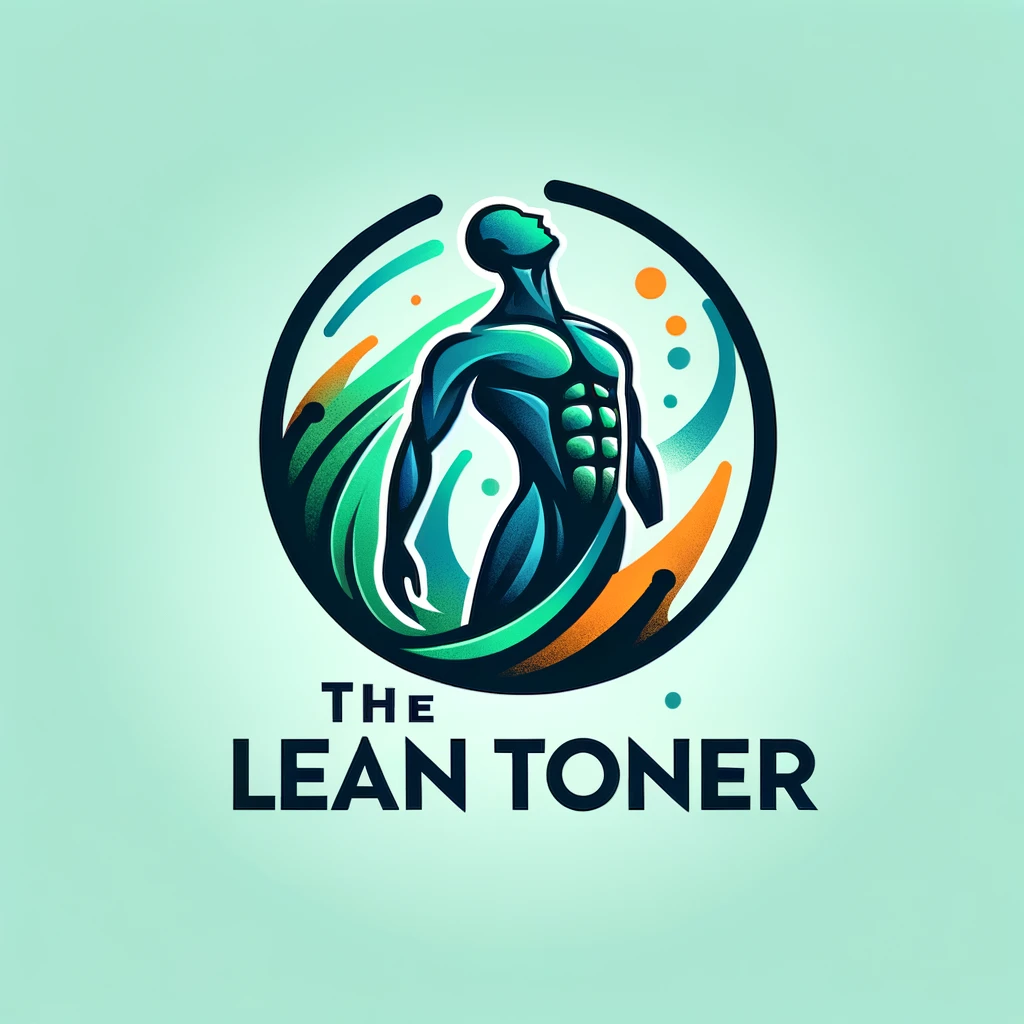Protein Shakes for Muscle Recovery and Growth: Your Ultimate Guide
Introduction
Protein shakes have become increasingly popular among fitness enthusiasts and individuals seeking to optimize their muscle recovery and growth. In this comprehensive guide, we will explore the role of protein in muscle recovery and growth, discuss the benefits of protein shakes, and provide practical tips for incorporating them into your fitness routine.
Understanding Protein and Muscle Dynamics
The Role of Protein in Muscle Recovery
Muscle recovery is a crucial process that occurs after exercise. When we engage in physical activity, our muscles undergo stress and micro-tears, which need to be repaired for muscle growth and adaptation to occur. Protein plays a vital role in this recovery process as it provides the building blocks (amino acids) necessary for muscle tissue repair.
Research has shown that consuming an adequate amount of protein after exercise can enhance muscle recovery by stimulating protein synthesis and reducing muscle protein breakdown. Protein also helps replenish glycogen stores, which are essential for energy production during workouts.
Protein and Muscle Growth: How Does It Work?
Muscle growth, also known as muscle hypertrophy, occurs when the rate of muscle protein synthesis exceeds the rate of muscle protein breakdown. Protein intake, particularly the consumption of essential amino acids, is crucial for stimulating muscle protein synthesis and promoting muscle growth.
Protein shakes, which are typically high in quality protein, provide a convenient and efficient way to meet your protein needs for muscle growth. By supplying your body with a readily available source of amino acids, protein shakes can support the anabolic processes necessary for muscle hypertrophy.
Different Types of Protein and Their Effects

When it comes to protein shakes, various types of protein are available, each with its unique characteristics and effects on muscle recovery and growth.
Whey protein is one of the most popular choices due to its high biological value and rich amino acid profile. It is fast-digesting and quickly absorbed by the body, making it ideal for post-workout recovery. Casein protein, on the other hand, is slow-digesting and provides a sustained release of amino acids, making it suitable for nighttime use or prolonged periods without food.
Plant-based protein options, such as soy, pea, and rice protein, have gained popularity among vegetarians and individuals with specific dietary preferences. While they may have slightly different amino acid profiles compared to animal-based proteins, they can still be effective in supporting muscle recovery and growth.
It’s important to note that the type of protein you choose should align with your specific goals and dietary preferences. Experimenting with different types and observing how your body responds can help you find the protein shake that works best for you.
Protein Shakes and Muscle Recovery

The Best Proteins for Muscle Gain and Recovery
When selecting a protein shake for muscle gain and recovery, it’s essential to consider the quality and composition of the protein. Look for protein powders that are low in additives and artificial ingredients, and opt for brands that undergo third-party testing for quality and purity.
Whey protein, especially whey protein isolate, is often considered the gold standard for muscle recovery and growth. It contains all the essential amino acids and is rapidly absorbed by the body, making it an excellent choice for post-workout nutrition.
Casein protein, with its slow-digesting nature, provides a sustained release of amino acids, which can be beneficial for muscle recovery during periods of fasting or overnight.
Plant-based protein options like soy, pea, and rice protein can also be effective for muscle recovery and growth. They offer a viable alternative for individuals with dietary restrictions or those who prefer a plant-based lifestyle.
How Protein Shakes Help with Muscle Recovery
Protein shakes offer several benefits for muscle recovery. Firstly, they provide a convenient and quick way to consume a concentrated amount of protein, ensuring that your muscles receive the necessary amino acids for repair and growth.
Secondly, protein shakes are easily digestible, allowing for rapid absorption and utilization of amino acids by the muscles. This quick delivery of nutrients can enhance the recovery process and promote muscle protein synthesis.
Furthermore, protein shakes can help optimize the muscle recovery window, which is the period immediately after exercise when your muscles are most receptive to nutrient uptake. By consuming a protein shake within this window, you can maximize the benefits of protein for muscle recovery.
The Relationship Between Protein Shakes and Muscle Growth
Protein shakes can play a significant role in supporting muscle growth when combined with an appropriate exercise program. Resistance training stimulates muscle protein synthesis, and consuming protein shakes post-workout provides the necessary amino acids to fuel this process.
Research has shown that individuals who consume protein shakes alongside resistance training experience greater muscle mass and strength gains compared to those who only consume carbohydrates. This suggests that protein shakes can effectively enhance muscle growth when combined with proper training.
It’s important to note that while protein shakes can be a valuable tool for muscle growth, they should not be seen as a magic solution. They should be used in conjunction with a well-rounded diet and a structured workout routine for optimal results.
Choosing the Right Protein Shake for Building Muscle
With the abundance of protein shake options available, it can be challenging to determine which one is best for building muscle. Here are some factors to consider when selecting a protein shake:
- Protein quality: Look for high-quality protein sources, such as whey protein isolate or hydrolyzed whey protein, which have a complete amino acid profile.
- Protein content: Aim for a protein powder that provides at least 20-30 grams of protein per serving.
- Carbohydrate and fat content: Depending on your goals, you may want to choose a protein powder with minimal carbohydrates and fats to control calorie intake.
- Taste and texture: Find a protein shake that you enjoy consuming, as adherence to your nutrition plan is crucial for long-term success.
It’s worth experimenting with different brands and flavors to find the protein shake that suits your taste preferences and dietary needs.
The Impact of Protein Timing on Recovery
The timing of protein consumption around your workouts can influence muscle recovery and growth. While the overall daily protein intake is crucial, consuming protein within the immediate post-workout period can provide additional benefits.
Research suggests that consuming protein shortly after exercise can enhance muscle protein synthesis, promote muscle repair, and improve recovery. Aim to consume a protein shake containing fast-digesting protein, such as whey protein, within 30-60 minutes after your workout.
However, it’s important to note that protein timing should not overshadow the importance of overall daily protein intake. It’s more beneficial to spread your protein intake evenly throughout the day rather than solely focusing on the post-workout window.
Practical Tips and Considerations
Accelerating Muscle Recovery: Beyond Protein Shakes

While protein shakes are an effective tool for muscle recovery, there are additional strategies you can incorporate to optimize the process:
- Get adequate rest: Ensure that you’re getting enough sleep and allowing your muscles time to recover between workouts.
- Stay hydrated: Proper hydration is essential for optimal muscle function and recovery.
- Consume a balanced diet: In addition to protein shakes, make sure your overall diet includes a variety of nutrient-dense foods that support muscle recovery, such as fruits, vegetables, whole grains, and healthy fats.
- Consider other nutrients: Certain vitamins and minerals, such as vitamin D, magnesium, and omega-3 fatty acids, have been associated with improved muscle recovery. Incorporate foods rich in these nutrients or consider appropriate supplementation.
Muscle Recovery Drinks: Protein Shakes vs. Recovery Shakes
Protein shakes and recovery shakes are often used interchangeably, but they can have different compositions and purposes.
Protein shakes primarily focus on delivering a concentrated amount of protein to support muscle recovery and growth. They typically contain protein powder mixed with water or milk.
On the other hand, recovery shakes are formulated to provide a combination of carbohydrates and protein, along with other nutrients like electrolytes, to replenish glycogen stores and support overall recovery. These shakes are often used after intense or prolonged exercise sessions.
The choice between protein shakes and recovery shakes depends on your specific needs and goals. If you’re primarily focused on muscle recovery and growth, protein shakes can be an excellent option. However, if you’re engaging in intense endurance activities or need to replenish glycogen stores, a recovery shake may be more suitable.
Protein Shakes on Non-Workout Days: Yay or Nay?
While protein shakes are commonly associated with post-workout nutrition, they can still be beneficial on non-workout days. Protein plays a crucial role in muscle repair and maintenance, regardless of whether you’ve engaged in exercise or not.
Including protein shakes in your diet on non-workout days can help ensure a consistent protein intake and support ongoing muscle recovery and growth. However, it’s essential to adjust your overall calorie intake and macronutrient distribution based on your activity level and goals.
Potential Pitfalls: When Protein Shakes Aren’t Enough
While protein shakes can be a valuable tool for muscle recovery and growth, it’s important to recognize their limitations. Relying solely on protein shakes without considering other aspects of your nutrition and training can hinder your progress.
Here are some potential pitfalls to be aware of:
- Inadequate overall nutrition: Protein shakes should supplement a well-rounded diet that includes a variety of whole foods. It’s important to consume a balanced mix of macronutrients and micronutrients to support overall health and performance.
- Neglecting other recovery strategies: While protein is crucial for muscle recovery, other factors like sleep, hydration, and stress management also play significant roles. Ensure you’re addressing these aspects for optimal recovery.
- Overemphasis on protein intake: While protein is important, excessive protein intake without proper calorie balance may not yield additional benefits. It’s essential to consider your overall energy needs and macronutrient distribution.
FAQs on Protein Shakes and Muscle Recovery
Here are some common questions related to protein shakes and muscle recovery, along with evidence-based answers:
- Q: How much protein should I consume for muscle recovery and growth?
- A: The recommended protein intake for muscle recovery and growth is around 0.7-0.9 grams of protein per pound of body weight per day. However, individual needs may vary based on factors such as activity level, goals, and overall diet.
- Q: Can I consume too much protein?
- A: While protein is essential, excessively high protein intake may not provide additional benefits and can strain the kidneys. It’s important to strike a balance and consult with a healthcare professional or registered dietitian for personalized recommendations.
- Q: Are protein shakes suitable for weight loss?
- A: Protein shakes can be beneficial for weight loss as they can help increase satiety, preserve lean muscle mass, and support a calorie deficit. However, it’s crucial to consider overall calorie intake and macronutrient balance when using protein shakes as part of a weight loss strategy.
- Q: Can I replace meals with protein shakes?
- A: While protein shakes can be a convenient meal replacement option, it’s generally recommended to prioritize whole, nutrient-dense foods for overall health and well-being. Protein shakes should not completely replace a varied and balanced diet.
Conclusion
Protein shakes can be a valuable tool for muscle recovery and growth. By providing a convenient and efficient source of protein, they support the repair and growth of muscle tissue. However, it’s important to remember that protein shakes should complement a well-rounded diet, proper rest, and a structured exercise routine.
When selecting a protein shake, consider your specific goals, preferences, and dietary needs. Experiment with different types of protein and find the one that works best for you.
Remember, muscle recovery and growth are multifaceted processes that require a holistic approach. Prioritize overall nutrition, rest, hydration, and other recovery strategies alongside protein shakes to optimize your results.
By understanding the role of protein shakes in muscle recovery and growth and implementing them strategically, you can enhance your fitness journey and reach your goals more effectively.




